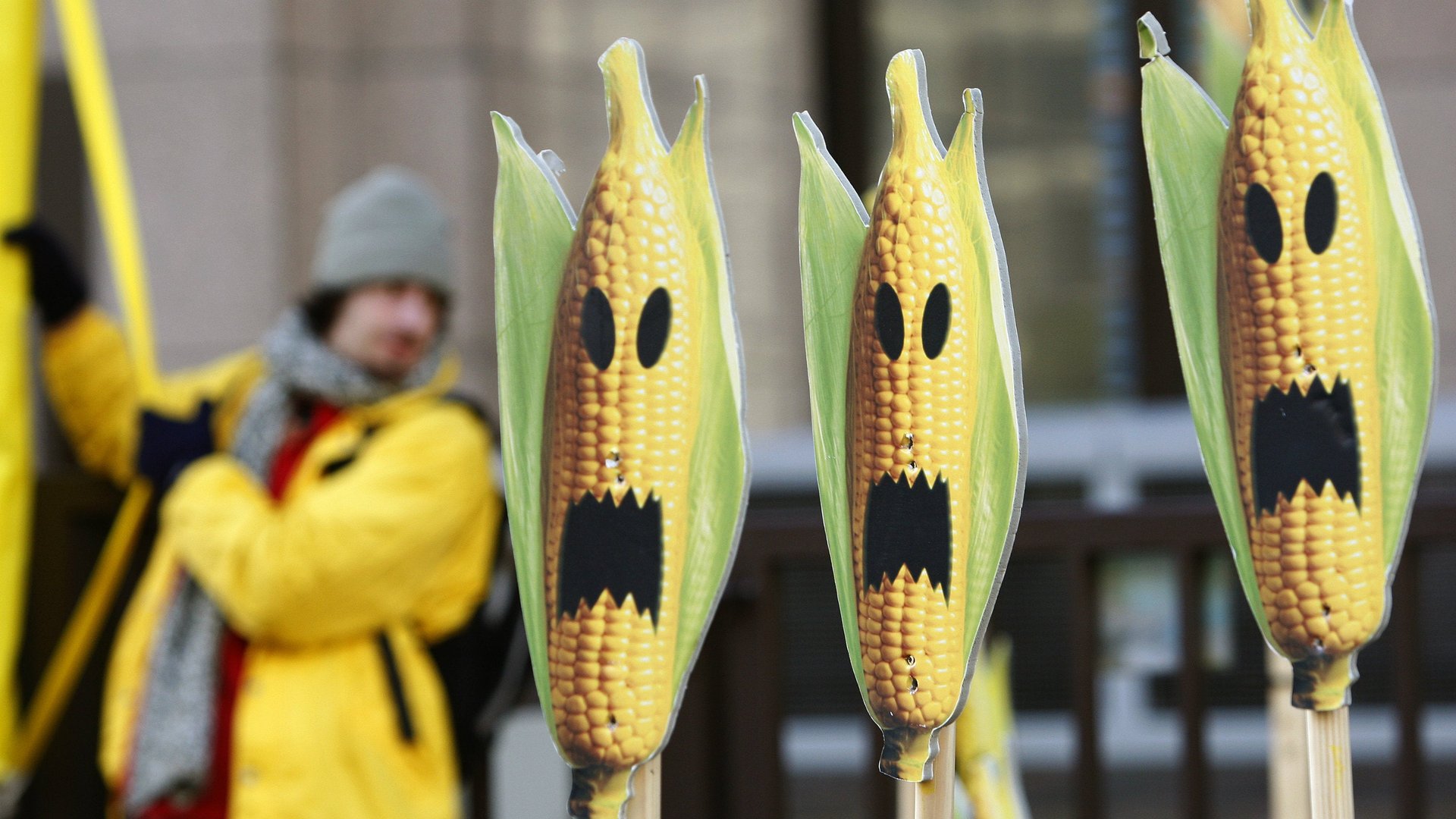Most of Europe will now be free of genetically-modified crops
Europe does not have an appetite for genetically-modified crops—15 of the European Union’s 28 member states have now opted out of cultivating them in their territories, including Denmark, France, and Germany. Around two-thirds of Europe’s arable land will be GM-free as a result.


Europe does not have an appetite for genetically-modified crops—15 of the European Union’s 28 member states have now opted out of cultivating them in their territories, including Denmark, France, and Germany. Around two-thirds of Europe’s arable land will be GM-free as a result.
Compare that to the US, where more than 90% of corn, soy, and cotton is now GM and consumers are generally quite tolerant of the crops.
After a recent ruling cleared the way for an EU-wide authorisation of certain GM crops, European countries have until tomorrow (Oct. 3) to notify the European commission of their intention to withdraw from the GM crop scheme, even if the European Food Safety Authority assessed them as safe.
While environmentalists are celebrating, the move is seen as a significant setback to growth of the biotech industry in Europe. Mark Buckingham from Monsanto UK told Science (paywall) that their business in Europe is “almost entirely focused on traditional seeds.” He suggests that any interesting research on GM crops that comes out of Europe will probably be marketed elsewhere.
A German chemicals company closed down its GM production facilities in Europe and moved them to the US, saying earlier this year there is “still a lack of acceptance for this technology in many parts of Europe from the majority of consumers, farmers and politicians.”
Big business could object to these opt outs, particularly from large countries such as Germany, but it’s unlikely they’ll be successful. The legislation gives member states a huge amount of flexibility to ban GM crops.